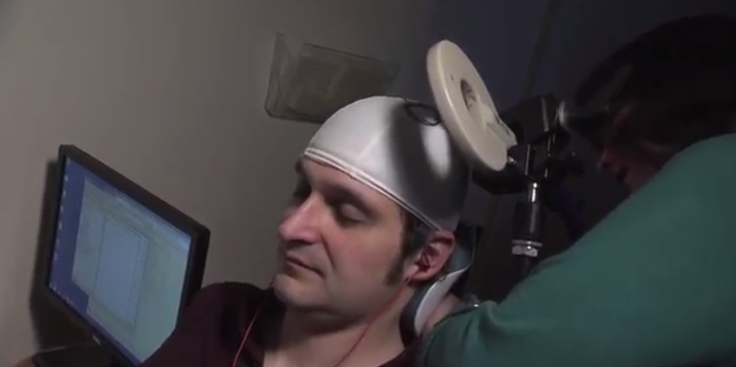Direct Electronic Transfer Of Thoughts And Actions Between Humans

Knowing something and explaining it are two different things. Communicating ideas, requests, even feelings, can often be unclear and hard to understand based on how a person describes or expresses them in words. But a research team at the University of Washington has released a new study on a technique that communicates thoughts and ideas clearly in less than a second: brain-to-brain interface.
The idea refers to the transmission of information from one person's brain to another through the use of the web and computers. The study was published in the journal PLOS ONE.
"What really characterizes humans is how much we rely on communication," Andre Stocco, a co-author of the study and research assistant professor at the University of Washington, told Medical Daily. "And the ultimiate limitation in communication is that not all of our thoughts can be easily put into words."
Participants in the study were split into three pairs, with each one undergoing the same task. One person, the sender, would sit and watch a video game about shooting rockets but have no keyboard to play the actual game. The receiver, located in a different building, would have access to a keyboard for the game but would not be able to see it. The sender is hooked up to an electroencephalography machine, which examines brain signals, while the receiver has a transcranial magnetic stimulation coil, attached over the side of the head that controls the right side of the body.
The sender, upon feeling the urge to shoot a rocket using their right hand, transmits the information through the machine, which sends it through the web to a computer that then assesses the information. The computer then transfers it to the DMS, which prompts the receiver's brain to move the right hand and perform the action on the keyboard.
A demo of the experiment took place in August 2013 and was used to help researchers update software and conditions for the participants for when the experiment really took place from January to April. Stocco says that much of the research is still limited, being unable to transmit long-term commands such as walking, but that it may be useful in the future by helping people in accidents or who suffer a stroke relearn certain functions.
"What we believe is that we are now just beginning to develop a technique that could be useful in the future," he said.
Starlab, a company in Barcelona, recently published a similar study in the same journal, though it only used one pair of volunteers and performed the experiment offline, according to UW Today.
Chantel Prat and Rajesh Rao, the other lead co-authors in the study, did not return calls for comment.



























